The Second Session of the Commercial Law Roundtable Forum "Development of Commercial Code - Business Law Structure of Business Conduct" Was Held Successfully
Date:2018-06-19
On June 2nd, 2018, the second round of Peking University Commercial Law Roundtable Forum was held in Beijing. The conference was hosted by PKULS, Peking University Corporate Legal Risk Management Research Center, and Jiangsu Taihe Law Firm and Beijing Hongjun Asset Management and so on. More than 70 people included well-known experts, scholars, judges, representatives of law enforcement agencies and lawyers from all over the country gathered to freely discuss the subject. The theme of this forum is “Developing a Commercial Code—Commercial Law Structure of Business Conduct”, which focuses on the legal orientation, technical adjustment, comparative research, and practice of business. Dean Zhang Shouwen of PKULS attended the meeting and delivered a welcome speech. He emphasized the importance of the study of the theoretical category and believed that this year's topic further proposed the core categories of commercial law and contributed to the development of disciplines and theories. Li Shichun, director of the Research Department of the China Law Society, was entrusted by President Zhang Wenxian to congratulate the success of the forum. He pointed out that the formulation of the Commercial Code requires a consensus and attention to the techniques and tactics of legislative and commercial legislation.
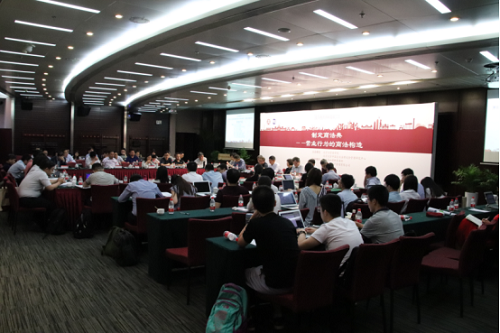
The forum is divided into five modules. The first module addressed the conference and the keynote dialogue. It discussed the positioning of business conduct in the commercial law system and leads to heated discussion. The second module refined the legal nature of business conduct, analyzes the business behavior, and the law. The relationship between behavior and other related concepts established a search path for the business conduct system. The third module draw on the experience from the perspective of comparative law to comprehensively introduce the background and current status of the corresponding system of business behavior in the civil law system and the Anglo-American law system, and discussed the transplantation of China. The feasibility of the fourth unit was the normative structural design of business conduct in the Chinese law, and the fifth unit combined practical cases to explore the effects of private law on business conduct regulation. In general, this forum had conducted a systematic discussion on the structure of business law for business conduct. The details were as follows.
1.Can Business Operations Become the Core Category of Commercial Law?
The first unit was the speech of the conference and the keynote speech. It was chaired by Zhao Xudong, professor of Civil and Economic Law School of China University of Political Science and Law, and Liu Kaixiang, professor of Peking University Law School. Professor Chen Su of the Institute of Law of the Chinese Academy of Social Sciences, Shi Shaoxia, professor of the National Prosecutors College, and Nanjing University School of Law Professor Fan Jian and Deputy Director of the Enterprise Registration Bureau of the State Market Supervision Administration Wang Lei participated in the keynote dialogue. This module revolves around “Can the business conduct become the core category of commercial law? The direction of the legal adjustment of business registration and business conduct? Legal regulation of business conduct: General Principles of Commercial Law, Commercial Code, or other?”.
In the keynote dialogue session, Prof. Chen Su elaborated on the change in the attitude of commercial law from suspicion to support, and considered that the establishment of a commercial code is an option to solve the civil code and cannot solve the problem, and further pointed out that there are two points to be considered when formulating a commercial code. The first is the division with civil law. The second is the discussion of the specific background issues of the business conduct system, emphasizing that the codification should be combined with the practice of Chinese society. Prof. Shi Shaoxia spoke on the theme of “The Status in the Category System of the General Principles of Commercial Law”. He believes that there are different levels of categories in the category system of “General Principles of Commercial Law”. “Businessmen” and “Business Conduct” are the cornerstones in the category system. In view of the fact that the business concept has a pillar role in the definition of business and business conduct, the “business conduct” should be separately stipulated in the General Principles of Commercial Law, and a commercial law system should be constructed with “commercial behavior”, “commercial subject”, and “business operations”. Prof. Fan Jian spoke on the subject of “The Concept of Business” in the context of Chinese business and French. He discussed the concept of business, sorted out the use of the word “business” in the commercial legislation of China, and introduced the civil law system. Different countries in Japan, Germany, France and other countries have emphasized the importance of concepts in institutional construction. Deputy Director Wang Lei made a keynote speech on “Continuously deepening the reform of the listing system and striving to create a high-quality business environment”, focusing on the historical achievements in the reform of the commercial system, the objectives of continuing deepening the reform, and the key reform tasks in the near future.
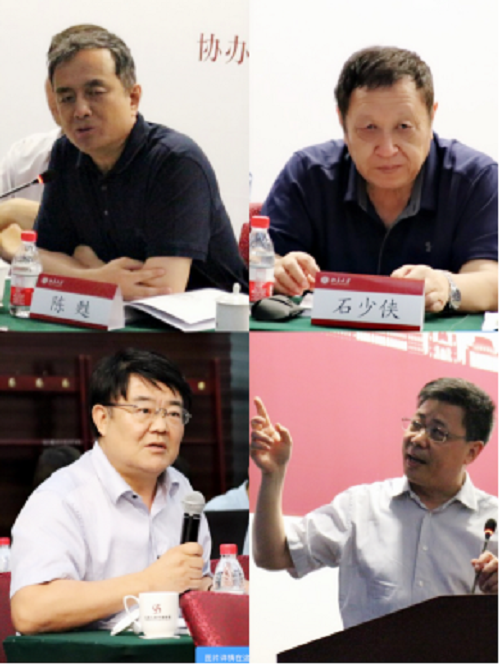
Prof. Liu Kaixiang presided over the first unit's comments, Professor Liu Junhai of the Law School of Renmin University of China, An Ning, Director of the Legal Affairs Office of the State Council, Professor Cao Xingquan of the Civil Law School of Southwest University of Political Science and Law, Professor Yu Ying of the Jilin University Law School, and Vice-Chairman of the Second People's Court of Jiangsu Province President Duan Xiaojuan and Professor Xu Defeng of the PKULS made wonderful comments.
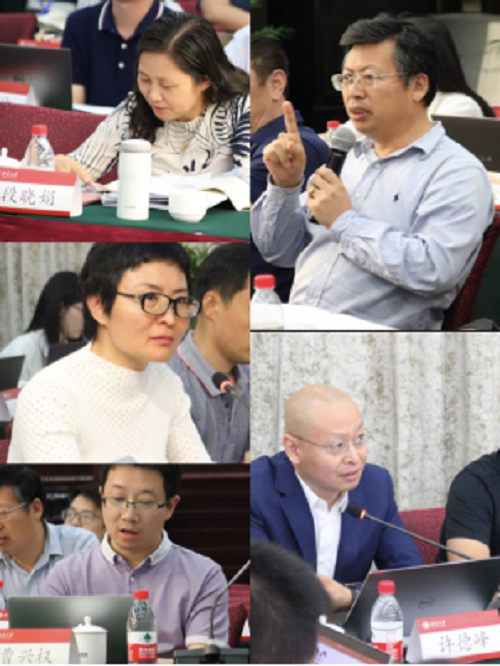
2. Business Behavior / Business Behavior or Legal Behavior?
The second unit was chaired by Professor Fan Jian from Nanjing University Law School and Feng Guo, a professor from Wuhan University Law School. Zhou Linbin, professor of ZhongShan University Law School, Lei Xinghu, professor of Law School of Zhongnan University of Economics and Law, Li Zhigang of China Asset Management Co., Ltd., and Zhao Lei, associate researcher of the Institute of Law of the Chinese Academy of Social Sciences, conducted in-depth discussions.
This module is based on the theme of “business conduct/business behavior or legal action?” around “What is business and business conduct? Is there a difference between business conduct and business conduct? The relationship between business conduct and civil/legal conduct? The financial business regulation What is the latest development?" Prof. Zhou Linbin made a speech with the theme of "Business Law Arrangements for Business Conduct." He emphasized that "business" is the basic concept/core category of business law. It leads business activities from operations, affirms the importance of the definition of business conduct, and advocates the relative Combine one, take “business behavior” as a subordinate concept, draw lessons from the foreign system to extract common factors, abstract the general rules, and define the general terms of business conduct in the General Principles of Business Law. Li Zhigang spoke on the topic of “business practices: normative purposes, concept functions and operability—transactional phenomena and legislative intent”. He discussed how to distinguish business operations, and proposed that problem-oriented normative business objectives, conceptual functions and Operational. Zhao Lei's associate researcher rose from business behavior to freedom of business, and raised new issues of discussion from the three levels of subjectivity, behavior, and sustainability.
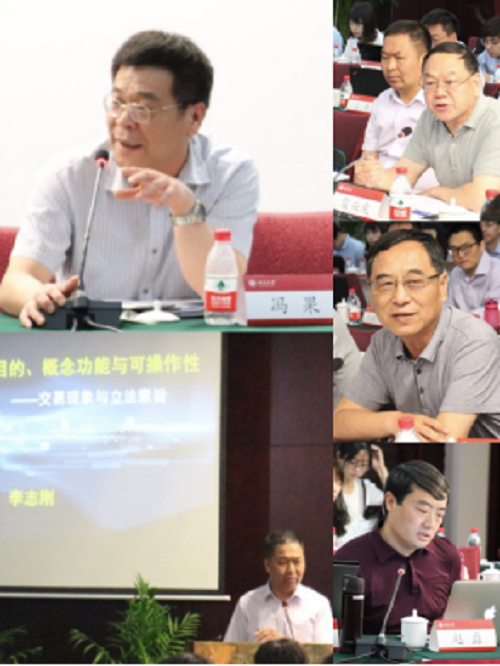
Professor Feng Guo, Professor of Law School of Wuhan University, presided over the commentary, Wang Yong, Professor of Civil and Commercial Economic Law, China University of Political Science and Law, Professor Leng Jing, Professor of International Finance and Law, East China University of Political Science and Law, Associate Professor Gao Qing, Faculty of Law, North China Electric Power University, and lecturer Xue Bo of School of Law, Central South University. Comments were made.
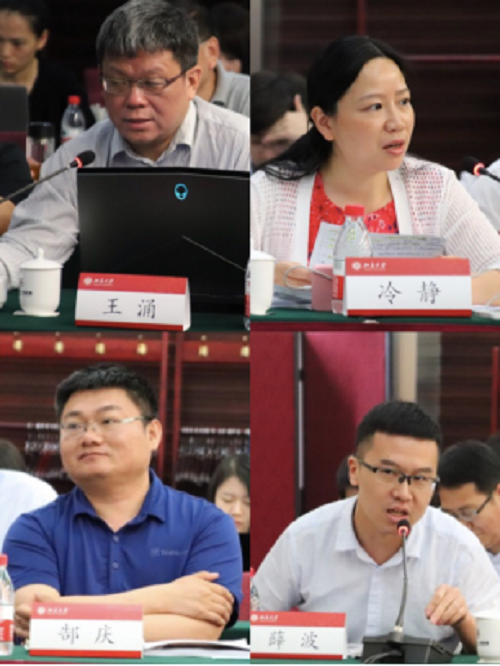
3. Compare Business Practices in the Field of Business Law
The third module was chaired by Guan Xiaofeng, professor of Civil and Economic Law of China University of Political Science and Law, and Guo Li, professor of PKULS. Cui Wenyu, professor of School of Law of Shanghai University, Hu Xiaojing, associate professor of Law School of Jilin University, and associate professor of the Civil Law School of Civil Law of Southwest University of Political Science and Law. Professor Cao Xingquan of the Civil and Commercial Law School of Southwest University of Political Science and Law conducted a unit dialogue. The theme of this unit is “Comparing Business Behavior in the Sight of Commercial Law”, and discusses the business practices of different countries in Japan, Germany, Italy, and the United States. Prof. Cui Wenyu speaks with the theme of "Maybe it is returning to the embrace of civil law? The reorganization of 'business behavior' in Japan's law reform". He pointed out that as a separate country of civil and commercial, the revision of the General Principles of Commercial Law leads to the gradual decline of the core criterion of "profitability". The ambiguity of the basic category of “commercial behavior” is caused by irrational competition between civil law and commercial law schools, and should return to the logic of independence of commercial law. Associate Professor Hu Xiaojing used the theme of "How to Understand Business Conduct?" and introduced the business operations, businessmen, business activities and their relations with each other in German law. Associate Professor Yang Shan focused on the role of the concept of 'business' in the commercial law - based on Italian business law. He first pointed out the importance of the concept's role, and then introduced the concept of business and merchants in Italian law. Professor Cao Xingquan pointed out that the formulation of a commercial code is a strategic culture or policy issue. It is necessary to consider substantive rationality and formal rationality, and questions the construction of freedom and restriction of freedom in the basic principles of commercial law.
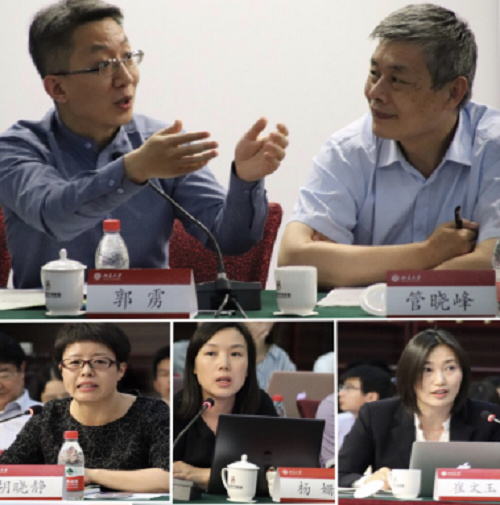
Prof. Guo Li from PKULS presided over the commentary, Ge Weijun, Professor of Law School of Shanghai University of Finance and Economics, Ding Yong, Associate Professor of International Finance and Law School of East China University of Political Science and Law, Associate Professor Chen Meiying of East China University of Political Science and Law, Associate Professor of School of Law of Tsinghua University, Shen Zhaohui, and Beijing Foreign Studies University. Jin Xiaowen, a lecturer at the School of Law, and Zhao Zhongkui, a postdoctoral fellow at the School of Economic Law of the Southwest University of Political Science and Law, commented that this unit hosted humor and commented on the dialogue.
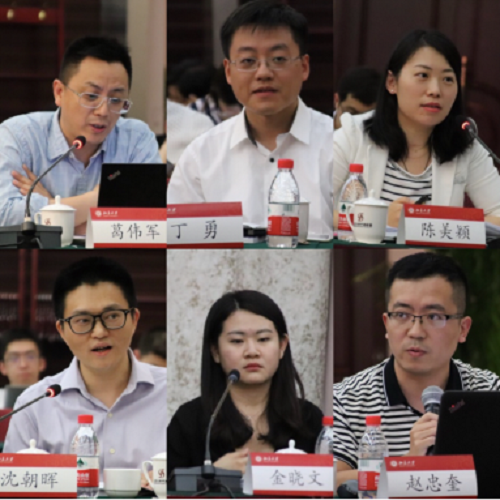
4. China's Legal Regulation of Business Operations
The fourth unit was presided over by Wang Liping, deputy editor of China Law magazine, and Zhao Wanyi, professor of Civil and Commercial Law, Southwest University of Political Science and Law. Prof. Lu Laiming, Professor of Law School of Beijing Technology and Business University, Xu Qiangsheng, Professor of Henan University of Economics and Law, Hou Dongde, Professor of Advanced Research Institute of Southwest University of Political Science and Law, Zhao Yu, Associate Professor of National Prosecutors College, and Ph.D. Wang Shoujie in PKULS conducted a unit dialogue.
The main purpose of this module is "China's legal regulatory design of business conduct". It mainly discusses the "business rules and regulations for the best path to business conduct, how the commercial law regulates the continuity of the contract, why the ordinary agent becomes a commercial business, and the basic logic of commercial regulations and innovative transactions." What is the problem? Prof. Lu laiming 's theme is "The concept of setting up a business system in the general rules of commercial law". He proposed the meaning of business, the importance of business rights, and the arrangement of business rules. He believed that business conduct must find the greatest common denominator of business conduct. Prof. Xu Qiangsheng, with the theme of “Construction of Commercial Law of Continuing Contracts”, demonstrated the relationship between continuing contracts and temporary contracts, and pointed out that the continuation of contract construction should emphasize the conversion of traditional parties to a credit structure, which is actually the construction of commercial law. Prof. Hou Dongde set out from the relationship between the superordinate concept and the subordinate concept of business behavior, introduced the path of business rules and regulations, and paid special attention to innovation transactions. Associate Professor Zhao Yu took the “rule of commercial law application in the context of civil code” as the subject, and conducted an empirical analysis of the judiciary, examining the applicable rules of the civil and commercial affairs department law, and taking the trial of the transfer of equity transfer as an example, pointed out that due to the lack of legal applicable rules, judicial practice The trial of cross-cutting civil and commercial transactions such as equity transfer is often a “result of trade-off”, emphasizing the importance of “targeting regulations” to accurately apply cross-domain content. Dr. Wang Shoujie’s doctoral student “discloses the veil of business innovation—the legal regulation of the 'fan economy'”. He discusses the regulation of fan economics from the perspective of economic law and commercial law, analyzes the game relationship between innovation business and regulation, and proposes that The tolerant law is the regulatory principle of business innovation, and takes the “fan economy” as a case to analyze the challenges of innovation regulation to traditional regulation.
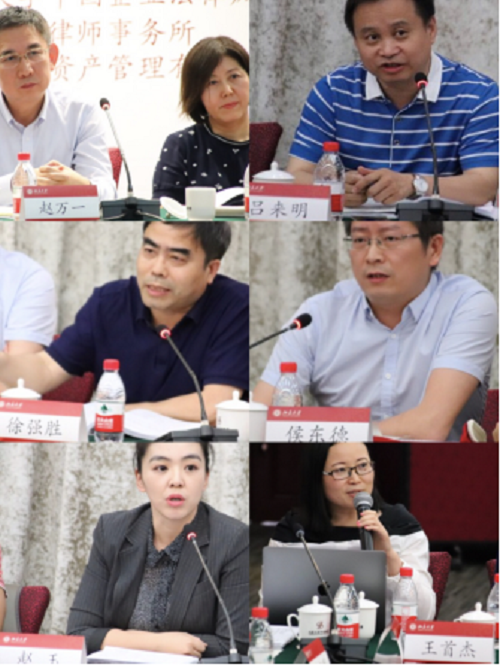
The free review session was chaired by Prof. Zhao Wanyi. Professor Wang Qingsong, professor of Civil and Commercial Law School of Southwest University of Political Science and Law, Zhao Yin, associate professor of Civil and Commercial Law College of Southwest University of Political Science and Law, Ren Qiming, assistant professor of Civil and Economic Law College of China University of Political Science and Law, and Wang Qi, doctoral student of Law School of Renmin University of China participated in the review.
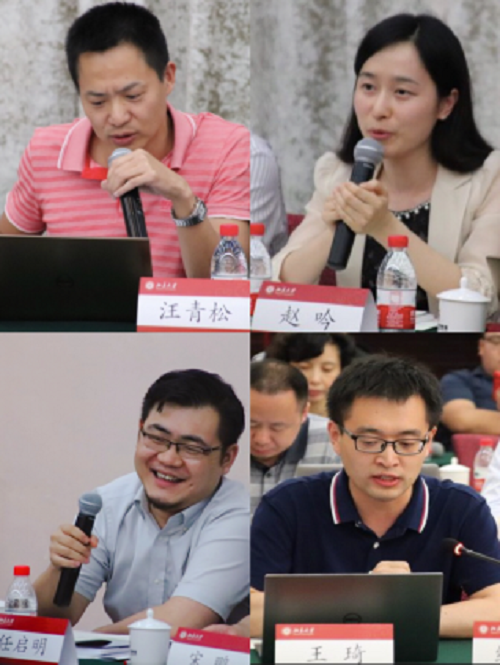
5. Private Law Effect of Violating Business Regulation Trading Behavior: A Dialogue between Practice and Theory
The fifth unit was chaired by Professor Shi Tiantao of the Law School of Tsinghua University and Ye Lin, Professor of the Law School of Renmin University of China. This unit revolved around the theme of “Private Law Effectiveness of Transactional Trading Practices: Dialogue between Practice and Academic Theory”. Judge Yu Zhengping, Vice President of the Third Circuit Court of the Supreme People’s Court on Weijie Investment Company and Fuzhou Tiance Industry Co., Ltd. Business Trust The referee's point of view in the dispute case's “invalidation of the insurance company’s shareholder holding agreement” was explained. Prof. Chen Jie, director of the Commercial Law Office of the Institute of Law of the Chinese Academy of Social Sciences, tit for tat, discussed the issue of judicial effectiveness from the perspective of business regulation. Yu Zhengping believes that this case shows that the judiciary's determination of the effectiveness of the contract regresses from two extremes—infinite intervention and almost no intervention—to rational judgment. For a long time, the court held that the violation of the regulations did not affect the effectiveness of the contract, resulting in an endless conflict between the judiciary and the administration. This inconsistency has led to the prevalence of merchant opportunism. However, this case does not mean that all contracts in violation of the regulations are invalid, but the court may interfere with the effectiveness of the contract under the rules and regulations involving the public interest. Prof. Chen Jie expressed the judge's misuse of the public interest channel to worry about the excessive intervention of administrative powers. He challenged the “public interest” in article 52(d) of the contract law and argued that the act of holding more is a violation of “management”. "Order" rather than "public interest", and that in recognition of the effectiveness of the holding agreement, the conclusion of the contract can not be implemented, is yet another better idea of the referee, thereby reducing the judicial interference in financial innovation.
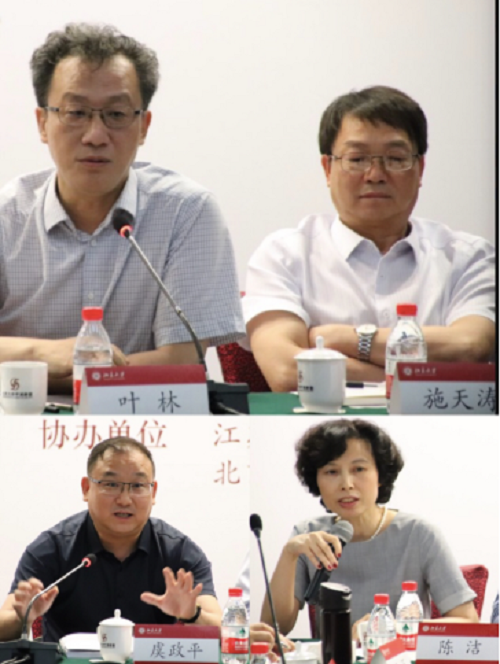
The free review session was chaired by Prof. Ye Lin. Members and discussants commented on the views of the two spokespersons. Specifically, they can be divided into three types of views.
One type of argument supports that the court may find the contract invalid under certain conditions. Professor Liang Shangshang pointed out that the distinction between administrative regulations and effectiveness regulations has been abandoned, the basic value system of administrative law and civil and commercial law should be consistent, and the particularity of financial supervision and management is emphasized. Associate Professor Ding Yong added opinions on the determination of public interests. He believes that the traditional concept of commercial law/corporate law is far from the public interest. The regulation in the company law is weak, but insurance is a highly regulated industry. It itself involves the protection of public interests. . Prof. Xu Qiangsheng introduced that the legal status and nature of the U.S. financial regulatory agencies are different from those of other administrative agencies. Their regulations are based on the consideration of overall public order, and they belong to the third sector in the United States. They also point out that commercial innovation cannot violate the prohibition. The judgment is worthy of support on the whole.
Another type of view is that the judicial referee should be used with caution to determine that the contract is invalid. Professor Wang Yong believes that it is necessary to further classify regulations and public interests. It is necessary to distinguish between regulatory interests and public interests. Things that can be resolved through supervision do not need to pass judgment. Professor Zhao Wanyi believes that there is no innovation in the financial industry without circumvention. From the perspective of commercial law, the legal evasion in the commercial field should remain modest. Professor Liu Junhai believes that the case involves judges’ value judgments. In order to prevent judges from abusing their discretion, they should limit the judges who find the contract invalid, and issue a judicial interpretation of a special shareholding agent. Prof. Liu Kaixiang pointed out that it is necessary to prudently apply rules and regulations as the basis for identifying invalid contracts.
In addition, some experts and scholars expressed their views on the further thinking of the case. For example, Judge Zeng Hongwei thought that there was a technical problem with legislation in Article 52 of the "Contract Law", and the relationship between the fourth and fifth items was unclear. Prof. Zhao Wanyi and Professor Fan Jian emphasized the honesty and credibility of businessmen and they must think from the perspective of the obligations of businessmen. Professor Zhou Linbin believes that the difference between commercial law and civil law lies in outstanding public and law factors. Mr. Duan Xiaojuan emphasized that the referee background of the case was the universality of the use of judicial and administrative loopholes by businessmen to avoid supervision. Prof. Wang Jianwen proposed that different types of subjects should be subject to differentiated regulation. In view of the current status of dishonest entities in the Chinese market, the stricter/heavier responsibilities should be applied to commercial entities from the perspective of the separation of civil and commercial interests. Professor Ji Ligang pointed out the limitations of specific cases and suggested that consideration should be given from the constitutional perspective to solve problems through institutional innovation. Li Zhigang expressed his views on the case from the perspective of the stability of law and the need to properly consider the actual needs and the relationship between the judicial and administrative controls.
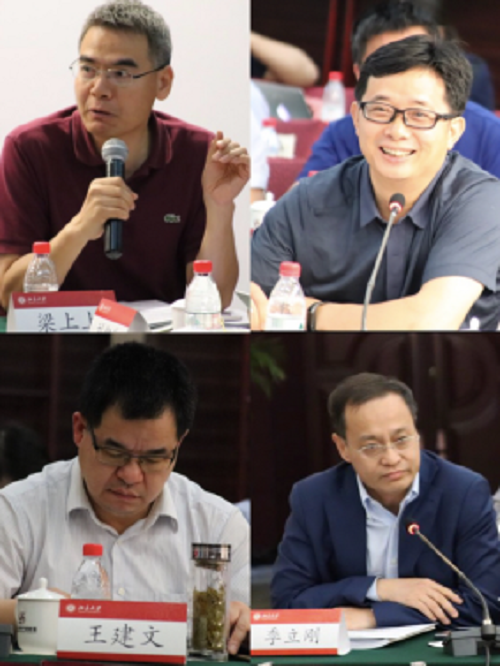
In response to the above controversy, Yu Zhengping finally added three points to his response: First, although the case was initiated by a violation of the regulations, the reason for the verdict was never invalid because of the violation of the regulations, but was invoked by citing “public interest” as an explanation; Second, the consideration of this case law policy is a response to the fact that the judiciary has been blind to administration for a long time. This has led to an endless stream of judicial and administrative arbitrage by traders; Finally, it shows that regulations should also have certain restrictions, especially the special supervision of the financial industry. This unit can be said to be fiercely confrontational and exciting. No matter whether it is the depth of academic discussion or the clash of practical views, it has left a very deep impression.
6. Summary
Fu Qiong, a professor from the Jilin University Law School, summed up the three arguments of the forum. One is the dispute over the scope of business operations, the other is the function dispute of the business transfer system, and the third is the legal effect on the business behavior of the forum. The dispute and the future of the business code have a bright future. Finally, Prof. Jiang Daxing gave a preview of the theme of the third forum, namely, “Developing a commercial code: the normative performance of the basic principles of commercial law”. I hope that experts and scholars will continue to contribute knowledge on this topic and actively support the next round of the Beijing University Business Law round table. forum. The forum was successfully concluded in the endless discussion of the participants.
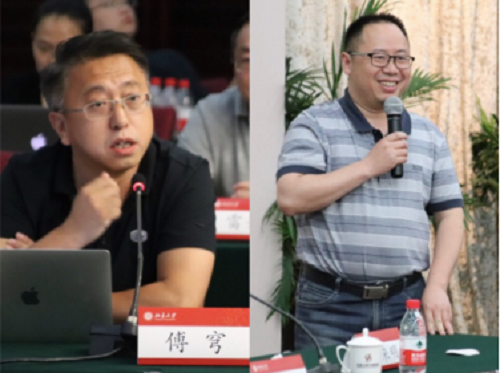
Translated by: Fu Liwei
Edited by: Peng Yuchen



